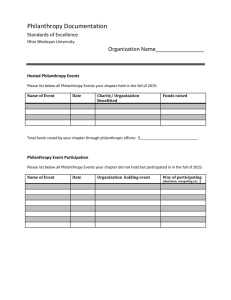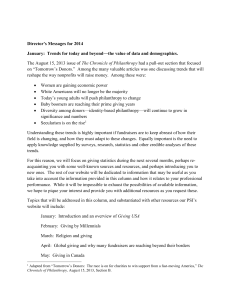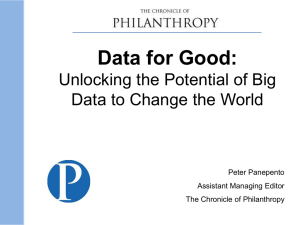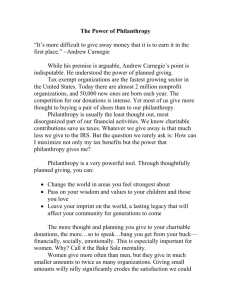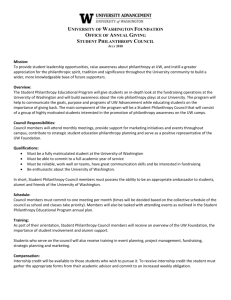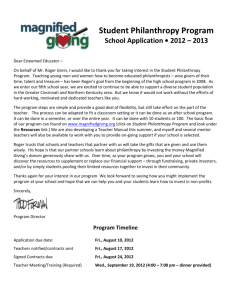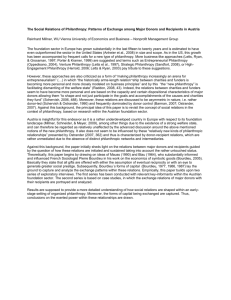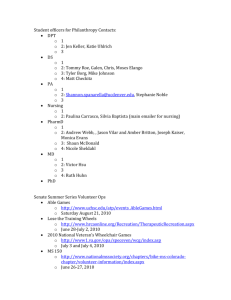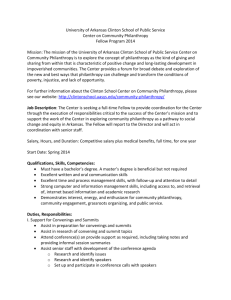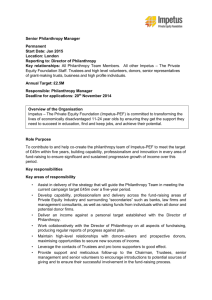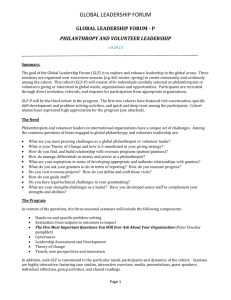Philanthropy Has More Intrinsic Benefits Than You Think
advertisement
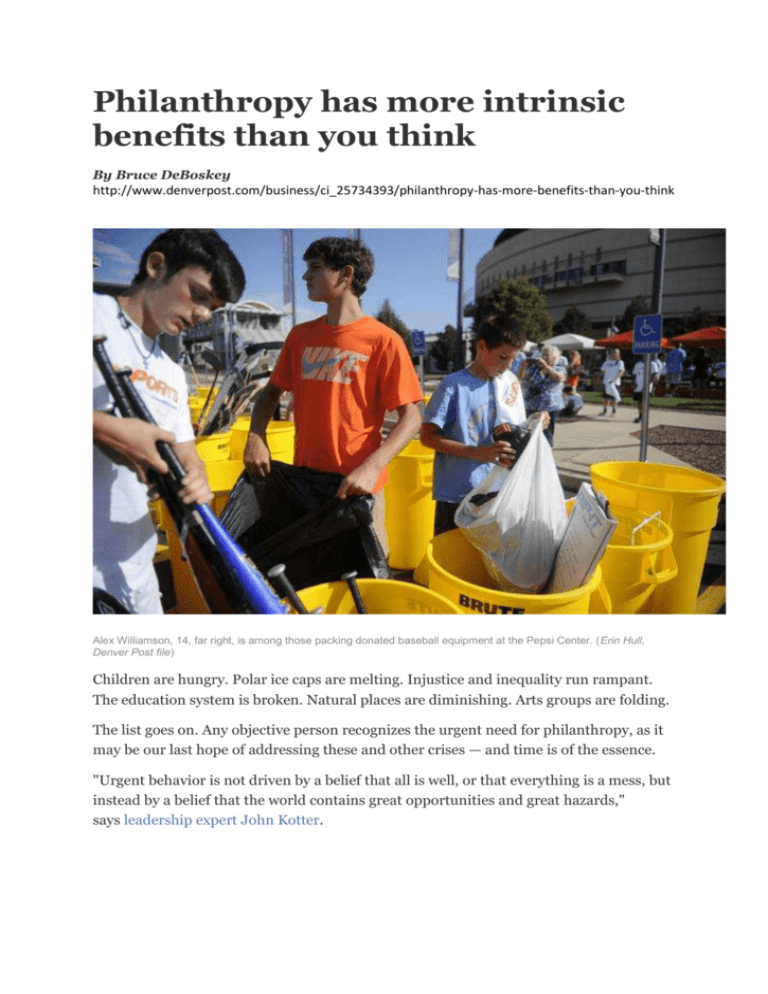
Philanthropy has more intrinsic benefits than you think By Bruce DeBoskey http://www.denverpost.com/business/ci_25734393/philanthropy-has-more-benefits-than-you-think Alex Williamson, 14, far right, is among those packing donated baseball equipment at the Pepsi Center. (Erin Hull, Denver Post file) Children are hungry. Polar ice caps are melting. Injustice and inequality run rampant. The education system is broken. Natural places are diminishing. Arts groups are folding. The list goes on. Any objective person recognizes the urgent need for philanthropy, as it may be our last hope of addressing these and other crises — and time is of the essence. "Urgent behavior is not driven by a belief that all is well, or that everything is a mess, but instead by a belief that the world contains great opportunities and great hazards," says leadership expert John Kotter. Bruce DeBoskey. (Special to The Denver Post) Urgent action benefits donors, too. There is also a subjective perspective that considers the immediate and demonstrable benefits to donors who act now to be more thoughtful and strategic about making philanthropy a cornerstone of their lives, families and businesses. "It is one of the beautiful compensations of life," said Ralph Waldo Emerson, "that no man can sincerely help another without helping himself." Many families fail to talk about their values around money and philanthropy while they still can. Advisers frequently meet families who wait until a grandparent, parent or child dies to start the conversation about giving. By then, a meaningful participant is lost. The time to begin a family discussion about philanthropy is today — when values can be developed and shared, priorities and goals established, and the philanthropic journey begun and enjoyed together. Philanthropy brings families together — today. Children as young as 3 can begin to learn about philanthropy. Teens can volunteer their time and share a portion of their allowance or earnings with a worthy cause. Young adults can actively participate in developing and implementing a family's strategy for giving. Mature adult children can become meaningfully involved in managing a family's charitable endeavors. By making charitable efforts a lifelong, joint endeavor, families discuss important subjects, learn how to make decisions and solve problems collaboratively, and develop new ways to connect and grow as a cohesive, functional unit. It's never too late to start. Younger individuals and families who begin their charitable efforts now, rather than waiting for the last quarter of life, find that the benefits are compelling. These include the opportunity to learn new skills as well as make friends, have fun and develop their place in a community. Philanthropy delivers real-time health benefits. Brain scans reveal that the mere thought of helping others by planning to make a donation makes people happier. Actual face-to-face helping also triggers areas of the brain associated with happiness. Across the U.S., millions of adults volunteer their time to help other people or a specific cause. This "giving" population reports an improved sense of well-being, lower stress levels, better physical and emotional health, an enriched sense of purpose in life and increased happiness. Albert Schweitzer put it this way: "One thing I know: The only ones among you who will be really happy are those who will have sought and found how to serve." Many people delay giving in the here and now with the rationale that they will do so in their wills. Although good estate planning is essential, it is not the best way to create a legacy. We guarantee the donors we work with that it is much more enjoyable and satisfying to give today than to give from the grave. "The idea of legacy may remind us of death, but it's not about death," says Legacy Project chairwoman Susan Bosak. "Legacy is really about life and living. It helps us decide the kind of life we want to live and the kind of world we want to live in." Philanthropy also helps businesses prosper. Businesses, too, benefit from charitable giving and employee volunteer programs. Startups and mature companies alike experience improved employee recruitment, retention and engagement from strategic community investment. Customer loyalty and bottom line profitability are also enhanced. By engaging in philanthropy today, you begin addressing the world's problems right now. In addition, you begin reaping the powerful benefits of philanthropy for yourself, your family and your business. Don't put it off. Bruce DeBoskey, J.D., is a Colorado-based philanthropic strategist working with The DeBoskey Group to help businesses, foundations and families design and implement thoughtful philanthropic strategies and actionable plans. More information at deboskeygroup.com.
